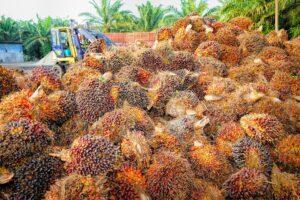Debate on deforestation: Indonesia and Malaysia clash with “protectionist” EU over palm oil policy
Indonesia and Malaysia join forces against new EU regulation on deforestation. Two of the world’s top palm oil producers say the EU directive would reduce the amount of palm oil they buy by not allowing it to enter EU markets unless it can be proven to have been obtained without deforestation.

(Photo: Pixabay)
The two countries agreed to work more closely together to fight an EU directive that effectively bans palm oil linked to deforestation. Council members Indonesia and Malaysia, the biggest palm oil producers, say the EU’s deforestation regulation is a protectionist attempt to protect uncompetitive EU farmers and block market access.
This is what the EU plans to do with palm oil
According to the European Commission’s forecast in the document “Agricultural prospects for the period 2021-2031”, biodiesel consumption will peak at 18.9 billion liters this year. However, the EU plans to focus on rapeseed oil in the next decade in terms of biofuel composition, so according to the European Commission, the predicted use of palm oil will account for 9% of the total biodiesel composition, compared to an average of 23% for the period 2019-2021. by %. From an agricultural point of view, the European Commission sees that the use of palm oil in the food industry will also decrease by 35.7% by 2032, which will halve the current demand for palm oil imports, from 6 million tons per year to 3.3 million tons by 2032. The EU rules will also cover derived products used in personal care products.
Small producers support the EU’s efforts
While the leaders of Malaysia and Indonesia condemn the EU regulations, SPKS, the Association of Indonesian Palm Oil Producers, commends the EU Parliament and the EU community for their leadership in taking responsibility for deforestation and forest degradation. Members of the association disagree with the politicians, who say it is a big opportunity for millions of Indonesian palm oil producers to benefit from the EU market by providing palm oil without deforestation and with traceability.
foodingredientsfirst.com
Related news
Bonduelle achieves B Corp™ certification worldwide
🎧 Hallgasd a cikket: Lejátszás Szünet Folytatás Leállítás Nyelv: Auto…
Read more >Essity in EU flagship project PROTEUS to develop bio-based super absorbents from algae
🎧 Hallgasd a cikket: Lejátszás Szünet Folytatás Leállítás Nyelv: Auto…
Read more >Related news
Festival buzz at the 60th anniversary EuroShop trade fair
🎧 Hallgasd a cikket: Lejátszás Szünet Folytatás Leállítás Nyelv: Auto…
Read more >No matter how much you save, food and gadgets always take the money
🎧 Hallgasd a cikket: Lejátszás Szünet Folytatás Leállítás Nyelv: Auto…
Read more >Historic price reduction at ALDI
🎧 Hallgasd a cikket: Lejátszás Szünet Folytatás Leállítás Nyelv: Auto…
Read more >







